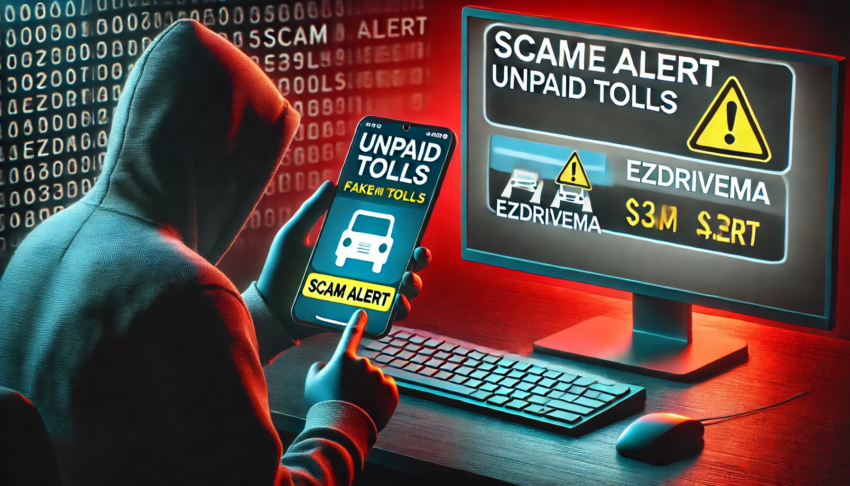Recently, a new scam has emerged targeting drivers across various states, including Massachusetts. This fraudulent scheme involves text messages that appear to be from EZDriveMA, the state’s electronic tolling system. These messages claim that the recipient owes money for unpaid tolls and urge immediate payment. Typically, the amount mentioned is modest—often around $6.99—to avoid raising suspicion.
The primary goal of these scammers isn’t to collect the small sum but to steal personal and financial information. By clicking on the provided link, victims are directed to a fake website designed to capture sensitive data.
How the Scam Operates
These scams, known as “smishing” (a combination of SMS and phishing), involve sending deceptive text messages to trick individuals into divulging personal information. The fraudulent texts often originate from international numbers and contain links to counterfeit websites that closely resemble official tolling agency sites.
The scam has evolved to target users of various toll systems, including E-ZPass and FasTrak, by sending messages that claim unpaid tolls and threaten fines or license suspension. The messages often include misspellings or incorrect toll system names, such as “FastTrack” instead of “FasTrak,” which can serve as a red flag.
Official Responses and Warnings
The Massachusetts Department of Transportation (MassDOT) has issued warnings about these scams, emphasizing that EZDriveMA will never request payment via text messages. All legitimate links associated with EZDriveMA will include www.EZDriveMA.com. MassDOT advises customers who receive unsolicited texts or emails suggesting they are from EZDriveMA or another toll agency not to click on any links.
Similarly, the New York State Thruway Authority has alerted residents about E-ZPass and FasTrak toll scam texts designed to extract quick payments by threatening fines and license suspension. They advise individuals to check the sender’s address carefully and note that genuine E-ZPass texts come from the five-digit number 39769.
Protecting Yourself from Toll Scams
To safeguard against such scams, consider the following precautions:
- Verify the Source: Legitimate toll agencies do not request payments via text messages. If you receive such a message, do not click on any links. Instead, visit the official website of your toll agency or contact their customer service directly to verify any outstanding payments.
- Inspect URLs Carefully: Scammers often use URLs that mimic official websites but may include subtle misspellings or additional characters. Always ensure that the URL matches the official website of the toll agency.
- Avoid Sharing Personal Information: Do not provide personal or financial information in response to unsolicited texts or emails. Legitimate organizations will not ask for sensitive information through these channels.
- Report Suspicious Messages: If you receive a suspicious text message, report it to your toll agency and the Federal Trade Commission (FTC) at ReportFraud.ftc.gov.
- Monitor Financial Statements: Regularly check your bank and credit card statements for any unauthorized transactions. If you notice suspicious activity, contact your financial institution immediately.
Staying One Step Ahead
Scammers continually adapt their tactics, making it essential for consumers to remain vigilant. By staying informed about common scam strategies and following the precautions outlined above, you can protect yourself from falling victim to these fraudulent schemes.
Remember, legitimate toll agencies will not solicit payments through unsolicited text messages. Always verify the authenticity of any payment requests through official channels before taking action.
